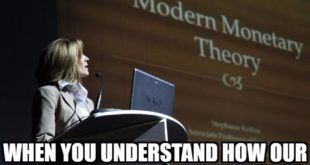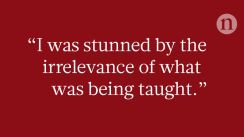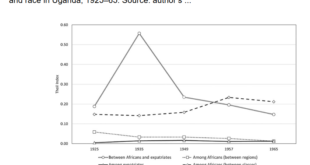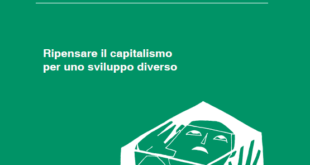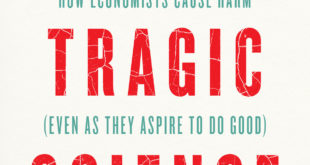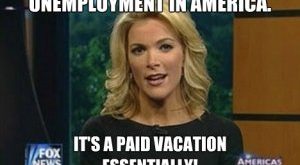MMT — the key insights As has become abundantly clear during the last couple of years, it is obvious that most mainstream economists seem to think that Modern Monetary Theory is something new that some wild heterodox economic cranks have come up with. That is actually very telling about the total lack of knowledge of their own discipline’s history these modern mainstream guys like Summers, Rogoff and Krugman have. New? Cranks? Reading one of the founders of...
Read More »The deficit myth
In modern times legal currencies are totally based on fiat. Currencies no longer have intrinsic value (such as gold and silver). What gives them value is basically the simple fact that you have to pay your taxes with them. That also enables governments to run a kind of monopoly business where they never can run out of money. A fortiori, spending becomes the prime mover, and taxing and borrowing are degraded to following acts. If we have a depression, the solution, then, is not...
Read More »Why economics is such an impossible science
Why economics is such an impossible science In a word, Economics is an Impossible Science because by its own definition the determining conditions of the economy are not economic: they are “exogenous.” Supposedly a science of things, it is by definition without substance, being rather a mode of behavior: the application of scarce means to alternative ends so as to achieve the greatest possible satisfaction—neither means, ends, nor satisfaction substantially...
Read More »Using the Theil inequality index to show and analyse increased colonial exploitation
Some time ago, I delved into the unique advantages of the Theil index of inequality over the Gini index, when data is available. The Theil index offers a distinct advantage in its ability to provide a consistent quantitative deconstruction of inequality. It does so by utilizing various concepts such as class, region, gender, or any other relevant factor. This feature allows for a comprehensive explanation of (changes in) inequality using the same set of concepts. The Theil index...
Read More »In praise of pluralism
In praise of pluralism Recognition of the speculative value of counterfactualizing provides the grounding for a defense of theoretical pluralism in economics. The existence of multiple contending theories in economics is inconvenient, of course. It casts doubt on the truth content of the counterfactual scenarios generated by the predominant approach and challenges the predominant causal claims … But that is precisely the virtue of contending theoretical...
Read More »Post-real economics — a severe case of mathiness
Post-real economics — a severe case of mathiness In practice, what math does is let macro-economists locate the FWUTVs [facts with unknown truth values] farther away from the discussion of identification … Relying on a micro-foundation lets an author say, “Assume A, assume B, … blah blah blah … And so we have proven that P is true. Then the model is identified.” … Distributional assumptions about error terms are a good place to bury things because hardly...
Read More »Perché la trasformazione del capitalismo è necessaria
Perché la trasformazione del capitalismo è necessaria Il capitalismo è un sistema economico affermatosi negli ultimi due secoli e mezzo in questa parte del mondo. Un sistema che per consolidarsi ha plasmato la società e la politica, creando un ordine sociale. Il ruolo principale dell’economia teorica dominante (mainstream) è stato quello di fornire un’apologia di un ordinamento sociale spacciato per naturale, ma che è stato in grado di generare crisi...
Read More »The Larry Summers Problem
The Larry Summers Problem Economists too often deceive themselves and their audiences into believing they know more than it is possible to know. As keepers of this Secret Knowledge, economists are rewarded in compensation, prestige, and influence for their expertise. At a 1991 speech at a World Bank-International Monetary Fund meeting, the famed Larry Summers told an audience, “The laws of economics, it’s often forgotten, are like the laws of engineering …...
Read More »DSGE models — worse than useless
DSGE models — worse than useless The unsellability of DSGE models — private-sector firms do not pay lots of money to use DSGE models — is one strong argument against DSGE. But it is not the most damning critique of it. The most damning critiques that can be levelled against DSGE models are the following two: (1) DSGE models are unable to explain involuntary unemployment In the basic DSGE models the labour market is always cleared – responding to a changing...
Read More »DSGE models — a total waste of time
DSGE models — a total waste of time While one can understand that some of the elements in DSGE models seem to appeal to Keynesians at first sight, after closer examination, these models are in fundamental contradiction to Post-Keynesian and even traditional Keynesian thinking. The DSGE model is a model in which output is determined in the labour market as in New Classical models and in which aggregate demand plays only a very secondary role, even in the...
Read More » Heterodox
Heterodox


